New academic research carried out on the Plum Village online course, Zen and the Art of Saving the Planet (ZASP), demonstrates that hope, joy and resilience can be sustained in these challenging times for the Earth.
The research outcomes presented here are based on an evaluation report by Luis Mundaca and Christine Wamsler from Lund University, Sweden (Mundaca & Wamsler 2025).
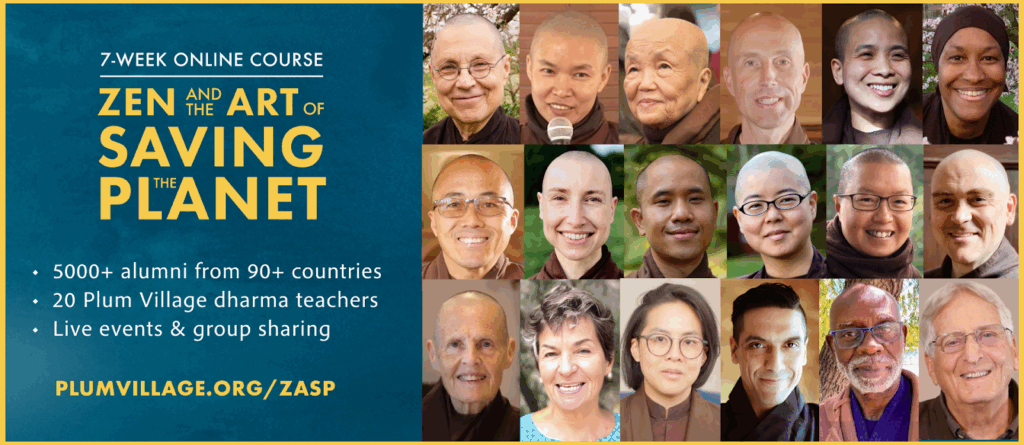
Generating Compassion
Understanding suffering always brings about the energy of compassion.
Thich Nhat Hanh
This is something difficult to touch upon in words, yet it can be directly experienced through practice. Through the ZASP course participants are invited to learn how to breathe with, walk with and tend to suffering, and are therefore able to transform it.
The ZASP course evaluation showed that following the course, 76% of participants report feeling more connected to nature, hopeful, empowered, supported, and better able to cope with climate change. In addition, 60% of participants report a decrease in climate anxiety and 63% of participants felt more equipped with the inner resources they need to deal with climate change.
Throughout the course, teachings are shared on how to face and navigate our suffering in relation to the climate crisis, in order to generate the energy of compassion in how we respond.
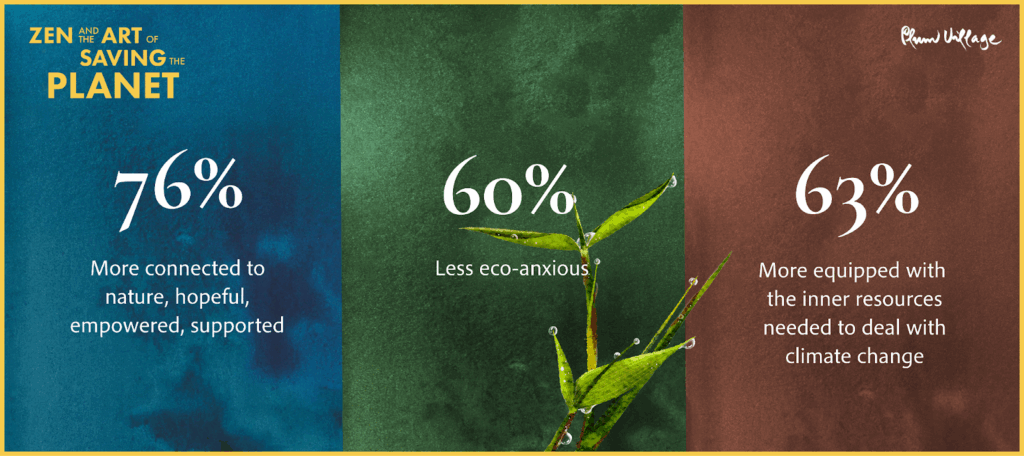
Embracing the Pain
If we know how to suffer, we will suffer much less.
Thich Nhat Hanh
There are many forms of physical and emotional suffering that result from climate change. In the world around us we experience how climate change exacerbates inequality and injustice, depletes natural resources and ultimately creates unstable conditions for human life. Within us this can bring up despair, anger, fear and hopelessness. How do we practice with this level of deep pain?
Many of us can spend time avoiding suffering; we keep ourselves busy, we consume, we try to shut off things that make us feel bad. Yet in denying the pain we miss the opportunity to transform our suffering. If we look closely we can understand our anxiety in response to climate change and find ways to take care of it with mindfulness.
Through the course evaluation, it was found that participants’ understanding of the meaning of their suffering changed. Participants describe “how the recognition of suffering, particularly climate-related grief and personal pain, became a gateway to transformation and healing…participants conveyed that despite suffering, a meaningful and joyful life remained possible, and that experiencing suffering was necessary for the development of care and compassion.” (Mundaca & Wamsler 2025, p. 24)

We Are the Earth and the Earth Is Us
If we look very closely, we see that we are the Earth and the Earth is us.
Br. Phap Huu
This quote from Brother Phap Huu succinctly touches on a key teaching from the ZASP course. Thay’s insight of interbeing helps us to understand that we are not separate from the world around us; we are deeply interconnected.
Accordingly, the ZASP course evaluation showed that “Participants’ sense of self expanded from ego-bound identities to an interdependent awareness deeply shaped by the teaching of interbeing. This shift was described not just intellectually but experientially. Several participants spoke of realizing they were more than just individual selves, expressing a deep sense of unity with the Earth and all beings” (Mundaca & Wamsler 2025, p. 24).
As a result of this participants also reported shifts towards more ecological choices, showing up with more presence and transformations in their connection to the world around them. 42% of participants feel more empowered to take action in response to climate change following the ZASP course. In terms of behaviour change, these were reported on a personal level and more systemically and specifically in relation to sustainability and / or climate activism too.

Global Community
The ZASP course has now been taken by over 5,000 people across 90 countries around the world. The power that comes from participating in this global community, and knowing that we’re not alone, is another important, transformative aspect that has been highlighted by the ZASP evaluation report.
When reflecting on the biggest change from the course, one participant commented: “[I now have] the belief that there is a way to connect deeply and to create community with many people over the globe who are not afraid to look at the darkest possible outcomes without going into panic states or doom thinking. The hope that the challenges we are facing make us more aware of our interconnection with everything and make us able to regenerate cultures in many diverse ways” (Mundaca & Wamsler 2025, Annex 1).
As a result of the course many people felt more connected to others who are able to support their aspirations to engage with climate change. We are very grateful to continue offering this course, with the next cohort coming up very soon. If you’d like to go on this learning journey with a global community please sign up to join us.
You can sign up now to join the next cohort of the ZASP course:

Reference
Mundaca, L. & Wamsler, C. (2025). Pre–Post Survey Analysis of the ‘Zen and the Art of Saving the Planet’ Online Course. Evaluation Report prepared for the Thich Nhat Hanh Foundation (TNHF), Lund University, Sweden. ISBN 978-91-8104-713-4.
If you have questions regarding the research, or are interested in further studies on the intersection between personal transformation and system change, please see here or contact christine.wamsler@lucsus.lu.se. If you have questions about the course, please contact zasp@plumvillage.org.


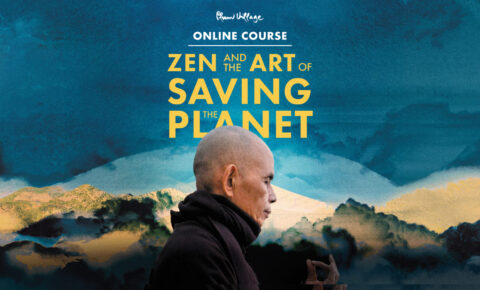
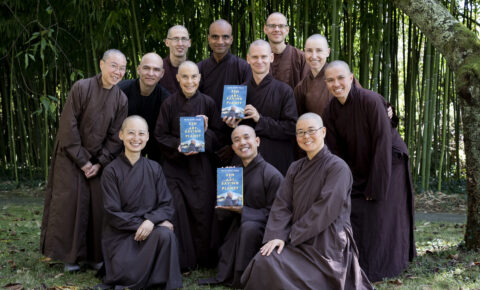
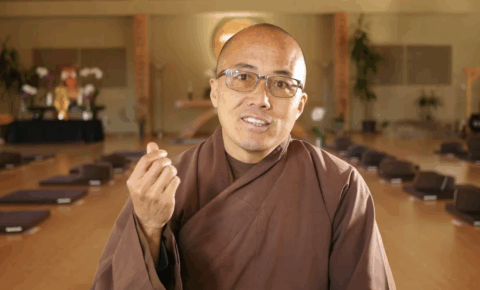
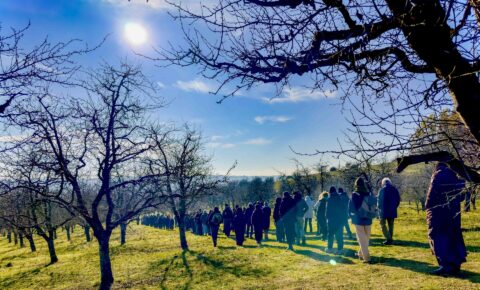
Share Your Reflections